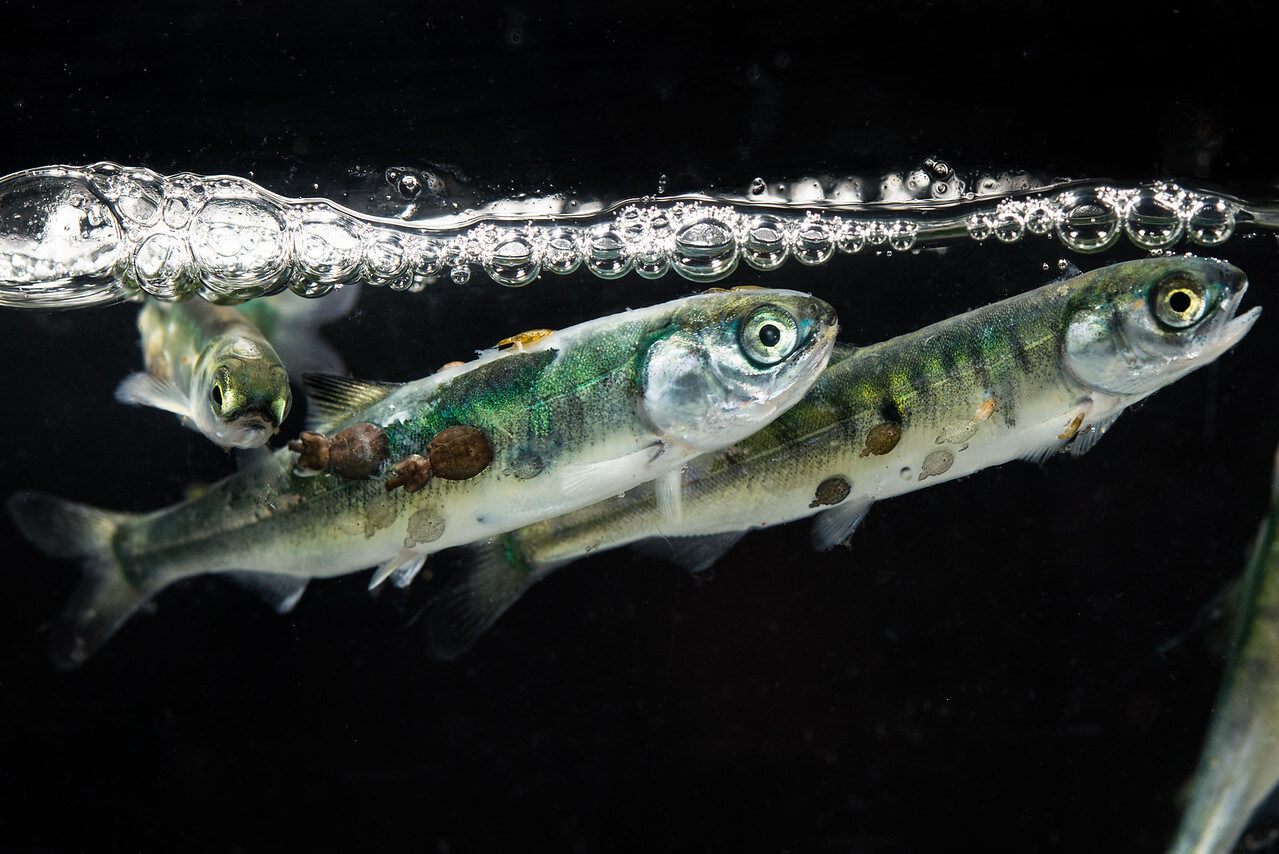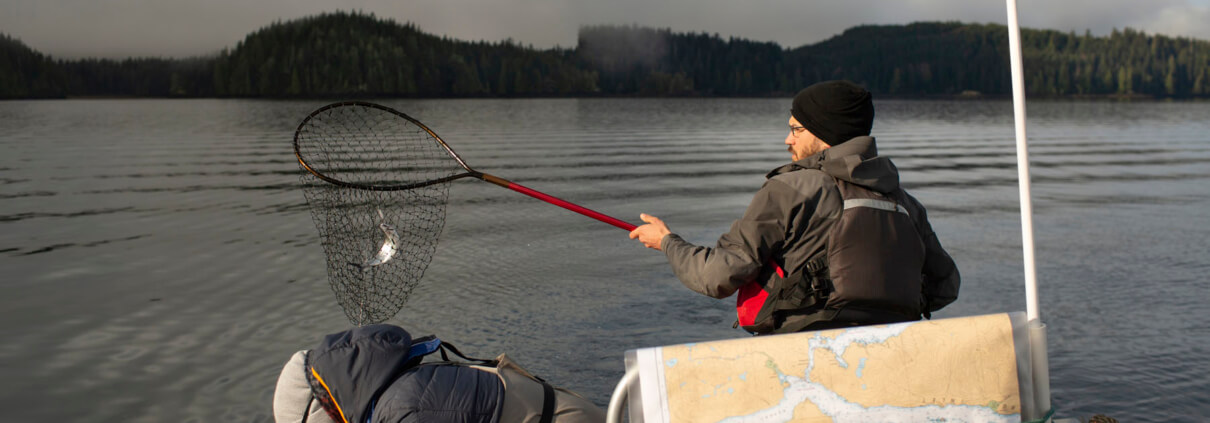Advancing salmon health
Wild Pacific salmon face several obstacles and perils through their life-cycle moving from freshwater to open oceans and back to their natal streams to spawn.
Natural human-derived stressors like climate change and open-net pen aquaculture create additional pressure. For a decade now, PSF researchers have conducted studies on the health of wild Pacific salmon to inform evidence-based policy to protect salmon for future generations.
Given the perilous state of Pacific salmon migrating past these fish farms filled with Atlantic salmon — that amplify harmful pathogens and sea lice — we believe strongly that moving the farms out of the water is urgent and essential in order to rebuild Pacific salmon stocks in British Columbia. — Michael Meneer, President and CEO
High-impact track record
Launched in 2013 with DFO and Genome BC, the Strategic Salmon Health Initiative (SSHI) has positioned PSF as a global leader in salmon health research. The ground-breaking research led by DFO Scientist Dr. Kristi Miller-Saunders informed the world on how infectious agents affect the health of wild Pacific salmon. The findings helped secure the Government of Canada’s commitment to transition away from open-net aquaculture in B.C. by 2025.
“Through independent science, the development of novel technology, and nearly 60 publications, the SSHI revolutionized our understanding of Pacific salmon health, and greatly influenced policy and decisions through an evidence-based approach that puts Pacific salmon first,” says Dr. Brian Riddell, former Pacific Salmon Foundation CEO and project co-lead of the SSHI.
In order to continue critical research to guide action and evidence-based policy, in 2021 PSF launched a Salmon Ecosystems Health program focusing on three key areas:
- Independent Research + Monitoring of Aquaculture: PSF experts research and monitor pathogen transfer.
- Broughton Partnership: PSF works with the Mamalilikulla, ’Namgis, and Kwikwasut’inuxw Haxwa’mis First Nations to implement the Indigenous Monitoring and Inspection Program. PSF Salmon Health is running this program in collaboration with DFO, conducting a study that compares the results obtained by standard fish health monitoring operations with the use of eDNA technology. The scope is to monitor the fish health status of Atlantic salmon in the farms and the distribution of pathogens in the waters surrounding the farms while actively measuring the presence of and the potential exposure of wild salmon to infectious pathogens.
- Cumulative Environmental Stressors: PSF deploys innovative Fit-Chip technology to understand the impact of changing environmental conditions on long-term survival of wild Pacific salmon.
“It is imperative to understand the effects of marine stressors, including disease agents, sea lice, ocean temperature, and predation,” says Dr. Andrew Bateman, who manages PSF’s Salmon Ecological Health program and whose research indicates that numerous infective agents are present in the millions of fish held in open-net salmon farms. “The long-term health of wild Pacific salmon depends upon the research we conduct today.”

How do we know a fish is stressed?
Various genes are turned on and off due to different health stressors. Using a Salmon Fit-Chip we can measure changes to find out what environmental conditions — salinity, low oxygen, and viral disease — stress salmon.
The Pacific Salmon Foundation invites you to partner in advancing Salmon Health.
To contribute, visit www.psf.ca/salmonhealth.



